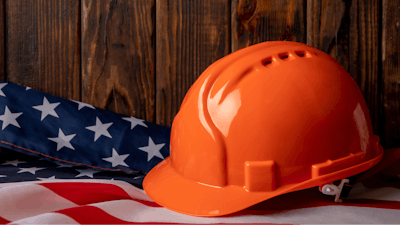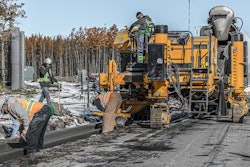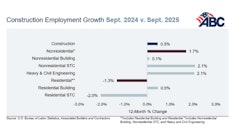
According to the Bureau of Labor Statistics most recent Census data, the construction workforce in the United States hovers around 7.8 million people. For everyone working in or adjacent to construction has seen the same hiring horror stories for a a few years now. The labor shortage has been a key talking point not just for politicians but for economists and for people working the asphalt industry too.
The shortage in labor has been used to explain everything from higher prices, rising wages, inflation, shorter service hours for businesses, and longer wait times for projects. One thing making some experts nervous for 2025 is what the incoming president has promised to do as a top priority.
In the days after his election win, President Trump declared his intent to use the military to carry out the largest deportation plan in American history. This would have a profound impact on the construction, and the asphalt industry by extension, without a doubt. In theory, you can see what the intention is, but the question is whether or not employers are ready to accept the collateral.
The positive result here is that by removing those working without proper documentation, you reduce the likelihood of workers being the victims of labor exploitation. Undocumented immigrant workers cannot seek out the same protections that documented migrant workers and U.S. citizens can.
They are almost always being underpaid, overworked, and left to fend for themselves if they get injured on the job. When they work on a crew, they do so at their own risk, with no leverage to protect themselves at all.
The negative side effect is that employers will almost certainly face an exacerbated labor shortage, worse than we've already experienced.
According to a 2022 survey conducted by the independent non-profit group American Immigration Council, 1.5 million members of the construction workforce are made up of undocumented laborers. If the new administration makes good on their plans, it could potentially push the labor shortfall for this sector in excess of 2 million workers. Construction would be the hardest hit industry by the deportations, but it wouldn't be the only effected U.S. industry by far.
For citizens and those with documented status, it could mean even better compensation, as the competition for skilled workers could potentially double or triple. It's hard to really nail down exact impacts, because there are some documented immigrants who may inevitably, though mistakenly, deported along with everyone else.
It could also mean that the conditions for the legal U.S. workers could become strained if they face more understaffed jobsites. The completion times for projects may get longer as the number of available crews is reduced. Longer lead times combined with slower production could result in smaller profits for contractors.
Ultimately, it's not an simple problem with an easy solution, but what we do know is that any possible decision doesn't take place in a vacuum. Whatever happens will have ripple effects on every business owner in our industry. See you on the road!




















